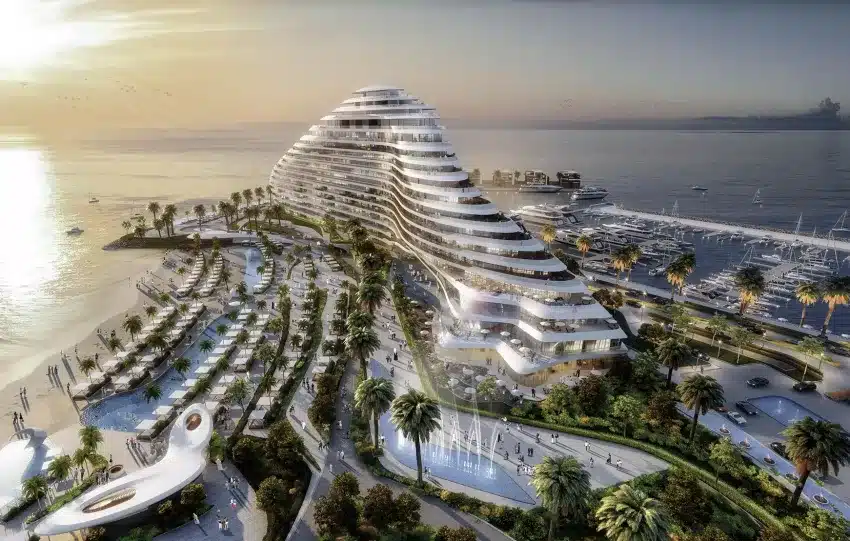Key Takeaways
- Dubai International Airport (DXB) kicks off 2025 by welcoming an estimated 4.3 million passengers in the first 15 days of January, marking a record-breaking start for the year.
- Daily passenger numbers are expected to peak on January 3 with over 311,000 travelers, demonstrating DXB’s ability to handle large volumes effectively.
- The airport’s 8% increase in traffic compared to the same period in 2024 and 6% rise compared to pre-pandemic levels signifies growing global travel demand.
- Dubai’s tourism surge in 2024 included 16.79 million international visitors, highlighting a 9% increase year-on-year.
- The hospitality sector in Dubai expanded in 2024, with the total number of hotel rooms reaching 153,390 across 828 establishments by the end of November.
- Key visitor regions in 2024 were Western Europe, South Asia, and GCC countries, showing diverse global interest in Dubai.
- DXB’s robust start aligns with Dubai’s vision to remain a leader in global tourism and connectivity.
As the world ushers in 2025, Dubai International Airport (DXB) celebrates an extraordinary milestone with a record-breaking influx of passengers. In just the first 15 days of the year, DXB welcomed approximately 4.3 million travelers, setting the stage for what promises to be a transformative year for global travel. This remarkable achievement not only underscores DXB’s status as a central hub in international aviation but also reflects broader trends in tourism and hospitality that define Dubai’s allure.
Dubai’s Thriving Tourism and Hospitality Landscape
An Unprecedented Surge in Passenger Traffic
Dubai International Airport’s operations in early 2025 epitomize efficiency and foresight, with January 3 witnessing a staggering peak of over 311,000 passengers traversing its facilities. This single day reflects the airport’s adeptness in managing massive traveler volumes, a skill that stems from years of infrastructural investments and strategic planning aimed at enhancing traveler experience.
With an impressive 8% rise in passenger traffic compared to the same period in 2024, and a 6% increase from 2018-2019 pre-pandemic levels, Dubai positions itself at the forefront of the global travel rebound. This resurgence is both a testament to the emirate’s resilience and a harbinger of sustained economic growth.
The Ripple Effect on Dubai’s Economy
The surge in passenger numbers signals much more than just busy terminals; it heralds a bustling tourism economy. In 2024, Dubai experienced a notable upswing in international visitors, recording 16.79 million tourists—a 9% jump from the prior year. Such growth is pivotal not only for the aviation sector but also for Dubai’s comprehensive appeal as a global destination.
Key Insights:
- Visitor Origins: Western Europe topped the list, contributing 3.298 million visitors, followed by South Asia (2.858 million) and GCC countries (2.5 million), packaging Dubai as a melting pot of cultural and regional diversities.
- Top Performing Months: February, October, and November emerged as peak months for tourist arrivals, indicating favorable climates and strategic holiday periods as potential catalysts.
Hospitality Sector: Growth and Innovation
The hospitality industry’s evolution in Dubai highlights the city’s open arms towards international guests. By the end of November 2024, the number of hotel rooms swelled to 153,390 spread across 828 establishments, climbing from 149,685 rooms in 2023. This growth is accompanied by diversification in accommodation offerings catering to varied traveler needs.
Accommodation Dynamics:
- 5-star Hotels: Constituting 35% of total capacity, these luxury establishments cater to discerning travelers, underscoring Dubai’s appeal as an upscale destination.
- Mid-tier Options: With a significant inventory of 4-star and 1-3 star hotels, Dubai ensures affordability without compromising quality, expanding its reach to a broader audience.
- Hotel Apartments: With the rise of 13,944 luxury and 12,423 mid-level apartments, Dubai addresses the growing demand for longer stays and family-friendly accommodations.
Future Outlook: Positioning for Leadership
Dubai International Airport’s promising start in 2025 aligns closely with the emirate’s strategic vision to maintain its dominance in global tourism and connectivity. This confluence of robust airport operations, a thriving tourism sector, and an evolving hospitality landscape sets a positive trajectory for the city, driving economic and cultural benefits on a global scale.
Through innovative infrastructure, strategic partnerships, and visitor-centric policies, Dubai not only enhances its competitiveness but also enriches the travel experience, making it a crucial node in international travel networks.




